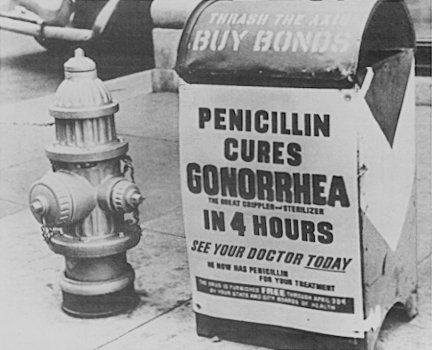Of course, we’ve learned how to produce penicillin faster since then, and other antibiotics as well. Read about penicillin recycling at Body Horrors.After one administration of injected penicillin, anywhere from 40 to 99 percent of the antibiotic is excreted in urine in its fully functional form about 4 hours after administration thanks to our efficient and hardworking kidneys (2). Due to this distinct feature of its pharmacokinetics, penicillin could be extracted from the crystalized urine of a treated patient and then used to treat another patient in the throes of serious bacterial infection just next door. In 1943, just shy of one year after its successful usage in saving the aforementioned woman’s life, the total amount of penicillin that had been produced was enough to treat only a hundred people, and this only if it was judiciously reclaimed and reused (3). Recycling penicillin wasn’t just smart; it was a necessity for such limited quantities of this wonder drug.
Welcome to ...
The place where the world comes together in honesty and mirth.
Windmills Tilted, Scared Cows Butchered, Lies Skewered on the Lance of Reality ... or something to that effect.
Windmills Tilted, Scared Cows Butchered, Lies Skewered on the Lance of Reality ... or something to that effect.
Monday, January 5, 2015
Recycling Penicillin
When
the first antibiotic, penicillin, was new, it was a very precious
commodity. Pharmacologists had to grow an enormous amount of mold to
produce even one dose. And considering World War II was raging, the need
was enormous, too. But scientists had an ace up their sleeves: they
knew that penicillin could be recycled, by collecting a patient’s urine!
Subscribe to:
Post Comments (Atom)


No comments:
Post a Comment